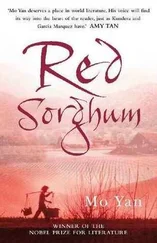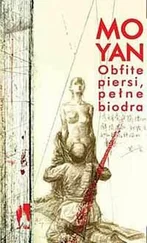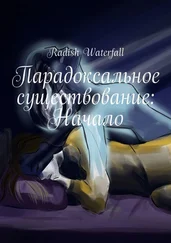An autumn morning, the air thickly humid, a layer of transparent dewdrops clung to blades of grass and roof tiles. Leaves on the scholar tree had begun to turn yellow; a rusty iron bell hanging from a branch was also dew laden. The production team leader, a padded jacket draped over his shoulders, ambled toward the bell, carrying a sorghum flatbread in one hand and clutching a thick-peeled leek in the other. By the time he reached the bell, his hands were empty, but his cheeks were puffed out like a field mouse scurrying away with autumn provisions. He yanked the clapper against the side of the bell, which rang out loudly — clang, clang, clang . People young and old streamed out of the lanes to converge beneath the bell, eyes fixed on the team leader, like a crowd of marionettes. He swallowed hard, and wiped his stubble-ringed mouth on his sleeve. All eyes watched that mouth as it opened — to spit out a stream of curses: ‘I’ll be fucked if those stupid commune pricks aren’t taking two of our stonemasons one day and two carpenters the next. He turned to a tall, broad-shouldered young man. ‘They’re breaking up our workforce. The commune plans to widen the floodgate behind the village, mason,’ he said to him. ‘Every team has to send them a mason and an unskilled labourer. It might as well be you.’
The handsome young mason had black eyebrows and white teeth, the contrast lending him a heroic bearing. A gentle shake of his head sent back a lock of hair that had fallen over his forehead. Speaking with a slight stammer, he asked who the unskilled labourer would be.
The team leader folded his arms, as if to fight off the cold, and rolled his eyes like pinwheels. ‘A woman makes the most sense,’ he rasped, ‘but we need them for picking cotton, and sending a man would be a waste of manpower.’ He looked around and his gaze fell on the wall. A boy of ten or so stood in a corner. He was barefoot and stripped to the waist, wearing only a pair of long, baggy, green-striped white shorts that were stained by grass and dried blood. The shorts ended at his knees, above calves shiny with scars.
‘I see you’re still with us, Hei-hai, you little shit!’ the team leader said as he studied the boy’s jutting breast-bone. ‘I thought you’d gone down to meet the King of Hell. Are you over the shakes?’
The boy didn’t respond, just kept his bright black eyes fixed on the team leader. He had a big head and a skinny neck that seemed in danger of snapping from the load it carried.
‘Feel like earning a few work points? Though I don’t know what a pitiful little thing like you could possibly do. A fart would knock you off your feet. Go with the mason to the floodgate, how’s that? But first run home and get a hammer, then you can sit up there and smash rocks, as many as you feel like, or as few. If history’s any judge, these commune jobs are just busy work meant to fool the foreign devils.’
The boy shuffled up to the mason and tugged at his jacket. He was rewarded with a friendly pat on his shaved gourd of a head. ‘Go home and ask your stepmother for a hammer, and I’ll meet you at the bridgehead.’
The boy took off. He had all the appearance of running, his rail-thin arms flailing like a scarecrow in the wind, but none of the speed. All eyes were on him, and as they looked at his bare back, they suddenly felt the cold. The team leader tugged at his jacket. ‘When you get home,’ he shouted, ‘tell your stepmother to give you a shirt, you poor little beggar!’
He stole in quietly through the gate. A snot-nosed little boy with a pushed-in face was sitting in the yard, playing in the urine-wetted mud. He looked up and threw open his arms: ‘Bro… bro… pick up…’ Hei-hai bent down, picked up a light red apricot leaf to wipe his stepbrother’s nose, then slapped the snotty leaf onto the wall like a leaflet. He waved the boy off and slipped into the house, where he picked up a claw hammer from a corner and slipped back outside. The little boy called out again, so Hei-hai snatched up a fallen branch, drew a wide circle around his stepbrother on the ground, then tossed the branch away and sped to the rear of the village, where a medium-sized river flowed, spanned by a stone bridge with nine arched openings. Owing to summer floods, the trunks of weeping willows growing in profusion on the levee were covered with red fibrous roots. Now that the water had receded, the roots had dried out. The willow leaves had yellowed and fallen into the river, to be carried slowly downstream. Ducks gliding near the riverbank quacked as they dug their red beaks into aquatic grasses in search of food, though who knew if they found any.
The boy was wheezing by the time he reached the levee. His jutting breastbone seemed to contain a clucking hen.
‘Hurry up, Hei-hai!’ the mason shouted from the bridgehead.
Hei-hai, still appearing to be running, made his way over to the mason. ‘Aren’t you cold?’ the mason asked as he looked him over.
Hei-hai just gaped at him. The mason was in work clothes — pants and jacket over a red athletic shirt, its dazzling collar turned up flamboyantly. The boy stared at that collar as if it were a bonfire.
‘What are you looking at?’ the mason asked, rubbing the boy’s head, which rocked back and forth like a drum rattle. ‘You,’ he said, ‘your stepmother has knocked the sense right out of you.’
The mason whistled a tune, rapping his fingers on the boy’s head as they walked onto the bridge. The boy stepped carefully to keep his head where the mason could rap it with thick knuckles that were hard as little clubs. It hurt, but he bore it silently, with only a slight wince. The mason could whistle just about anything with his moist, red lips. Puckering them up and spreading them a bit, he mimicked the crisp, melodic notes of a meadowlark and sent them soaring into the sky.
They crossed the bridge, climbed the levee and headed west to the floodgate, about half a li away. The floodgate was also a bridge of sorts, the difference being a flashboard that held back the water when it was down and released it when it was raised. The levee’s gentle slope, densely covered with feathery river locusts, gave out onto a wide, spongy sandbank where wild grass was already taking root in the wake of the summer flood. Rich open country spread out beyond the levee as far as the eye could see, saturated from the annual floods with silt deposits that turned once hard black earth into fertile soil. The most recent flood had been light enough to spare the levee, so the gate had remained shut. The floodplain was so densely planted with Bengalese jute it was like a virgin forest. A light mist shrouded the field on that early morning, lending it an oceanic quality.
The mason and Hei-hai strolled up to the floodgate, where two teams waited on the sandy ground. Men made up one team, women the other, like a pair of rival camps. A commune cadre, notebook in hand, stood between the teams and gestured as he spoke to them, raising and lowering his arms. The mason led Hei-hai along the floodgate’s concrete steps and walked up to the man. ‘Reporting in from our village, Deputy Director Liu,’ he said. He had often been temporarily assigned to the commune, where Director Liu was frequently in charge of projects, so they already knew each other.
Hei-hai was staring at Director Liu’s broad mouth. When the purple lips that formed that mouth came together they produced a string of sounds: ‘You again, you slippery devil. That damned village of yours sure knows how to meet quotas. They’ve sent me a man who could slip through the holes of any strainer. Just my luck. Where’s your helper?’
Hei-hai felt the mason’s knuckles on his head.
Читать дальше












